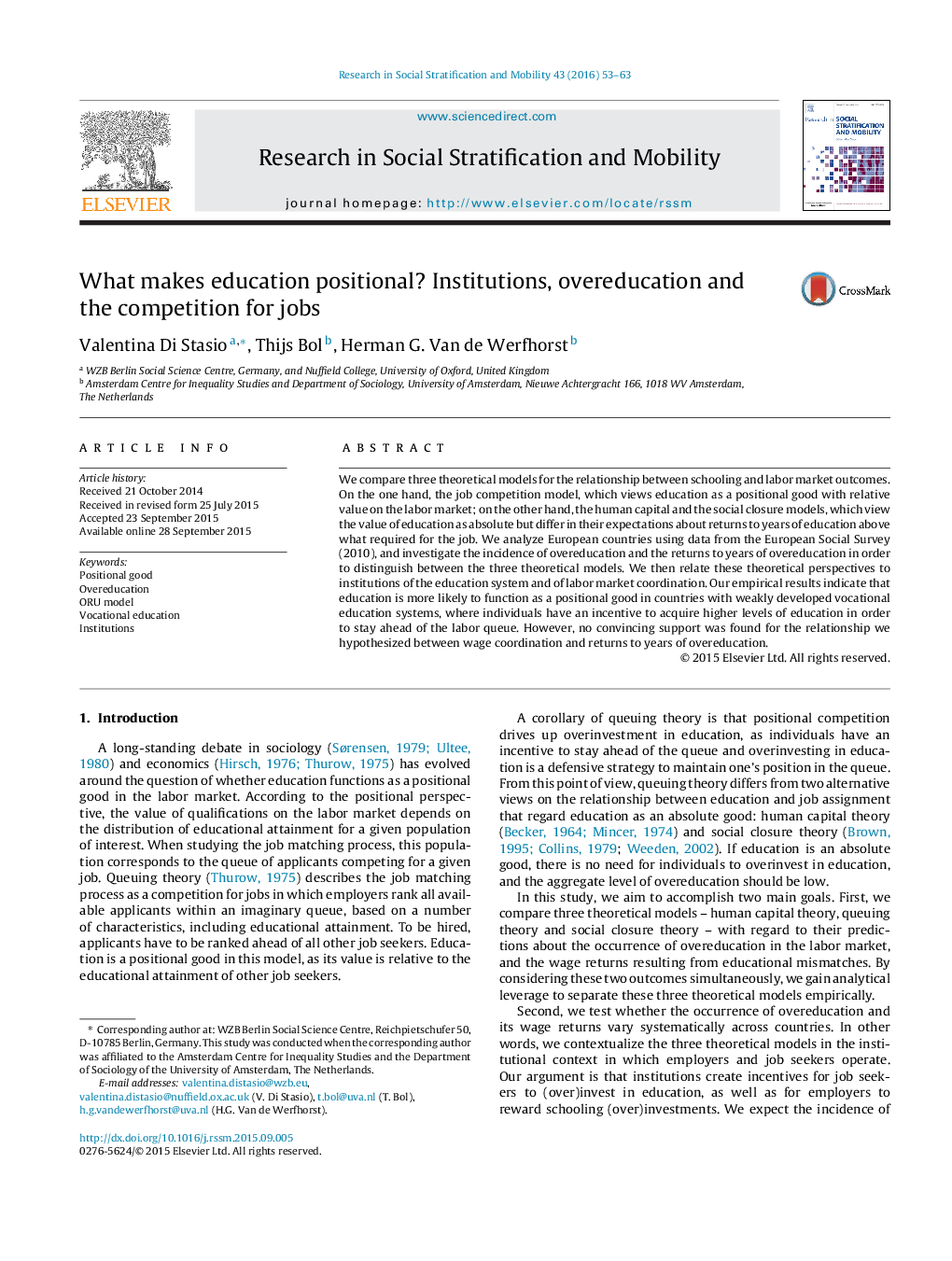| Article ID | Journal | Published Year | Pages | File Type |
|---|---|---|---|---|
| 998568 | Research in Social Stratification and Mobility | 2016 | 11 Pages |
•The role of education as a positional good varies across institutional contexts.•Education is more a positional good in less vocationally oriented education systems.•Strong vocational education systems reduce the incentive to overinvest in education.•The relationship between wage-setting institutions and returns to overeducation is modest and varies by gender.
We compare three theoretical models for the relationship between schooling and labor market outcomes. On the one hand, the job competition model, which views education as a positional good with relative value on the labor market; on the other hand, the human capital and the social closure models, which view the value of education as absolute but differ in their expectations about returns to years of education above what required for the job. We analyze European countries using data from the European Social Survey (2010), and investigate the incidence of overeducation and the returns to years of overeducation in order to distinguish between the three theoretical models. We then relate these theoretical perspectives to institutions of the education system and of labor market coordination. Our empirical results indicate that education is more likely to function as a positional good in countries with weakly developed vocational education systems, where individuals have an incentive to acquire higher levels of education in order to stay ahead of the labor queue. However, no convincing support was found for the relationship we hypothesized between wage coordination and returns to years of overeducation.
